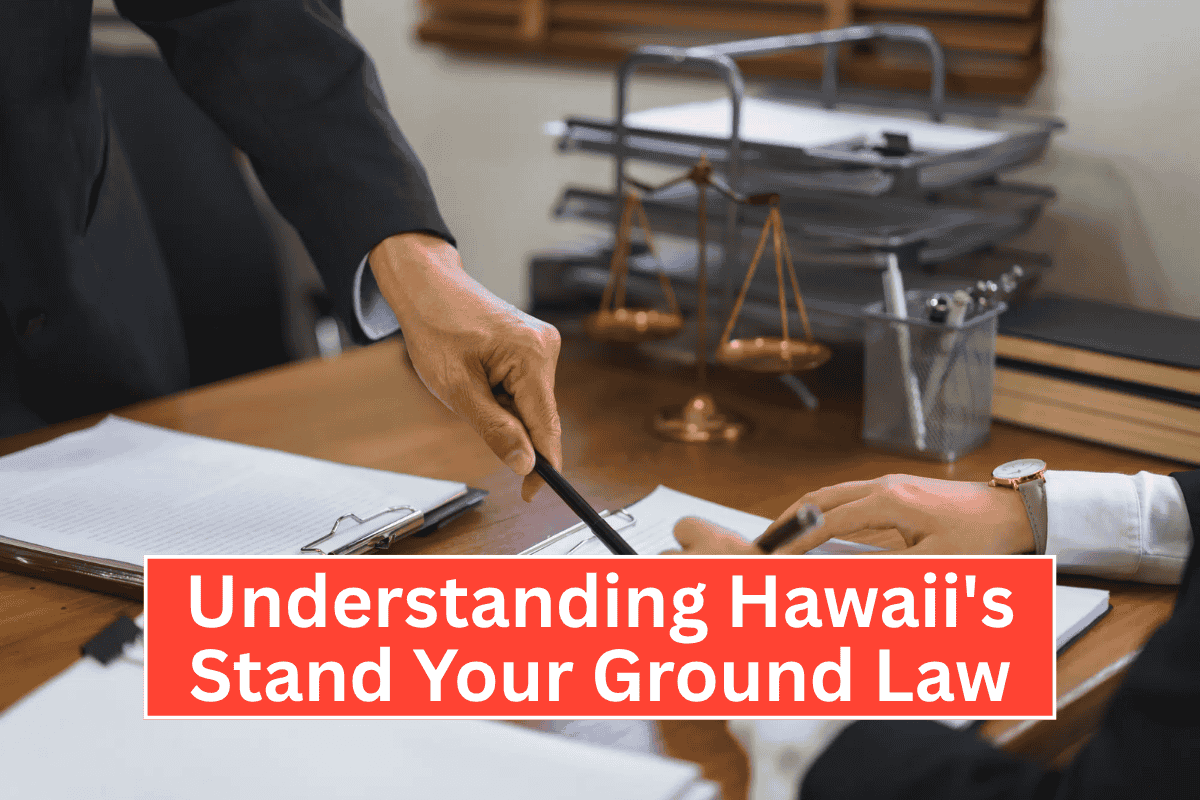When someone is accused of a violent crime, they might say they acted in self-defense. In simple terms, this means the person agrees they used force but claims they had no choice—they were trying to protect themselves from being hurt.
In Hawaii, this defense is taken seriously, and it can change the outcome of a case. But to use it properly, you need to know the rules.
Let’s break down how Hawaii’s self-defense laws work, what the law allows, and how someone can prove their actions were justified.
What Does Hawaii Law Say About Self-Defense?
In Hawaii, self-defense is allowed under certain conditions. If a person thinks they are about to be harmed or attacked, they can use force to protect themselves. However, the force must match the level of threat. That means you can’t use deadly force if the threat is small or not life-threatening.
Hawaii Revised Statutes Section 703-304 explains this clearly. According to the law, someone can use force if they believe it’s immediately necessary to stop another person from hurting them.
But deadly force (like using a weapon to kill) is only allowed if the person truly believes that without it, they would be killed, badly hurt, kidnapped, or sexually assaulted.
When Is Deadly Force Allowed?
The law says deadly force is only okay if:
The person believes they are in danger of dying or being seriously hurt.
They are being threatened with kidnapping or rape.
There is no other safe way to avoid the harm.
This means that if someone just pushes or yells at you, you cannot respond by using deadly force. The danger has to be very serious.
How Can You Prove You Acted in Self-Defense?
Just saying “I acted in self-defense” is not enough. You must prove it with clear evidence. Here’s what can help:
Witnesses: People who saw what happened and can say you were being threatened.
Physical evidence: Injuries, weapons, or anything else that shows there was real danger.
Expert opinions: Professionals who understand self-defense can explain why your actions were reasonable.
Your own story: You must tell the court what happened in a clear, honest, and believable way.
The judge or jury will look at all this information to decide if you really had to defend yourself.
Why Is It Important to Understand Hawaii’s Self-Defense Law?
If you’re ever involved in a violent situation, knowing your legal rights can make a big difference. Using self-defense as an excuse when it’s not allowed can get you into more trouble.
On the other hand, if you truly acted to protect yourself, the law is there to support you—if you can show the court why your actions were necessary.
Understanding the self-defense laws in Hawaii helps people protect themselves not only physically but legally too. It’s always better to avoid violence when possible, but when danger is real and serious, the law gives you the right to defend yourself within limits.
Hawaii’s self-defense laws allow people to protect themselves if they believe they’re in serious danger. But that protection comes with rules.
The threat must be real, the response must be reasonable, and the danger must be immediate. You can’t use deadly force unless you truly believe your life is at risk. To prove self-defense, you need solid evidence and a believable explanation.
Knowing these laws can help you stay safe and make smart choices during high-stress situations. If ever in doubt, speaking with a lawyer can help you better understand your rights and responsibilities.












